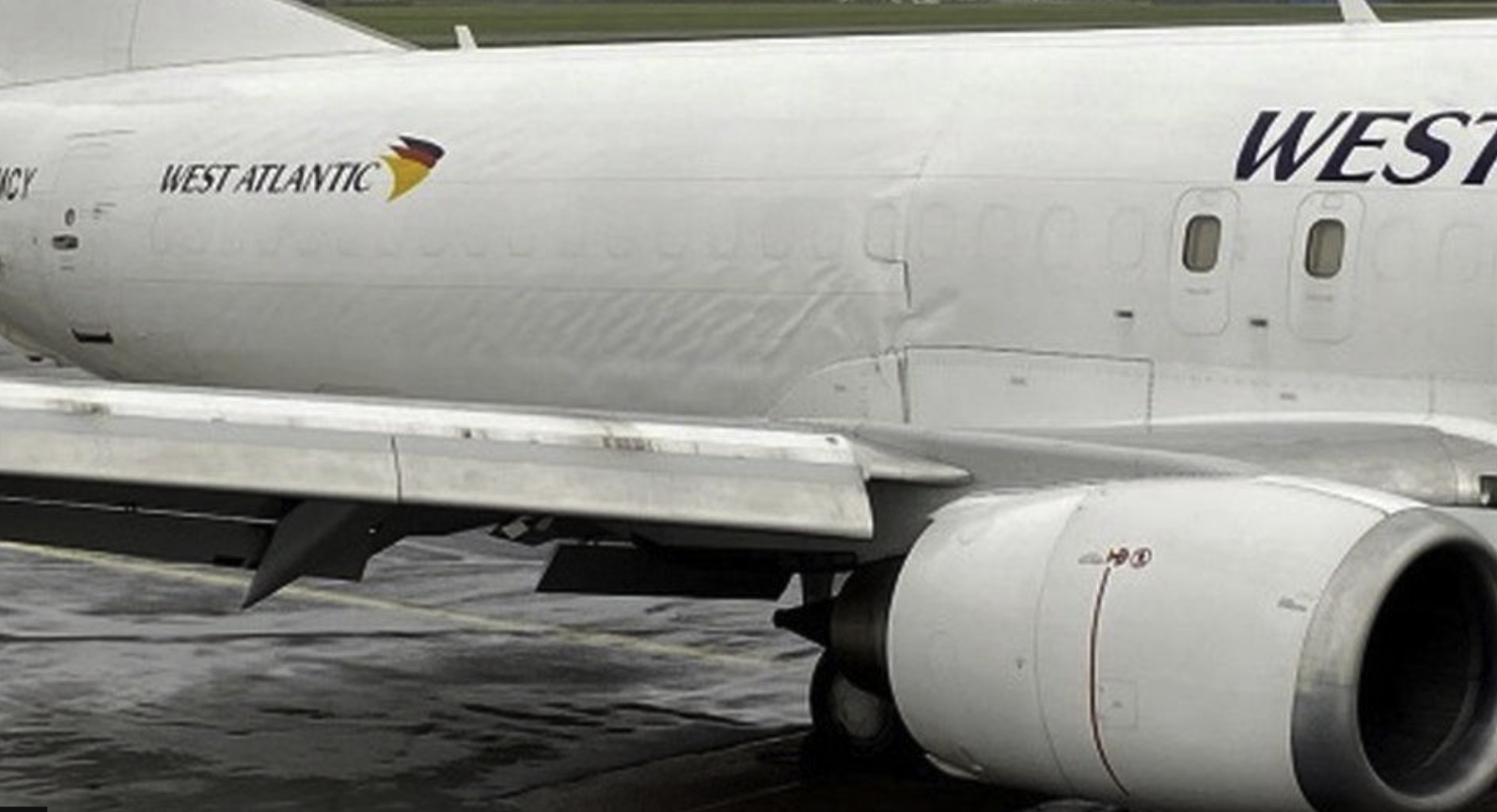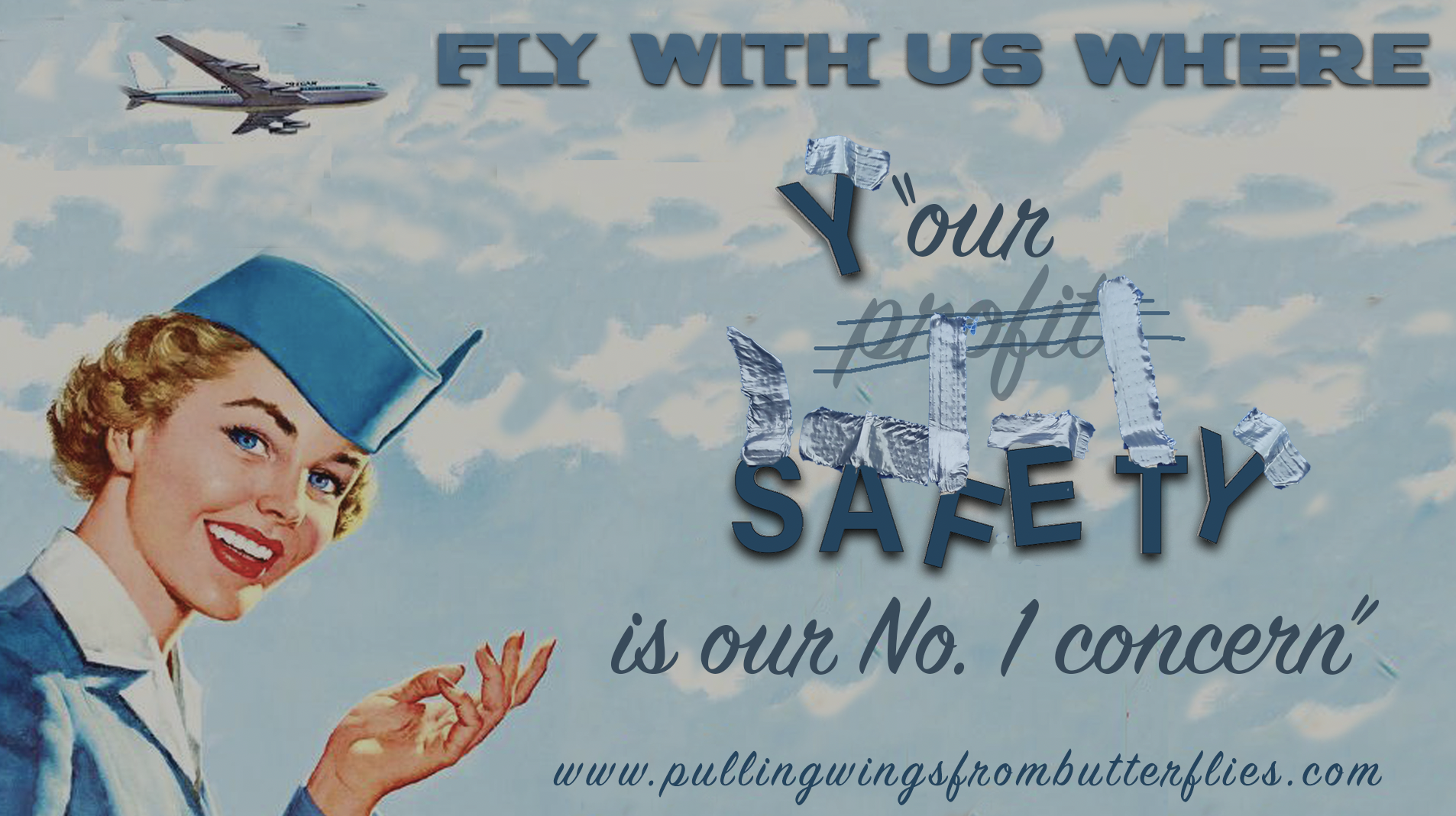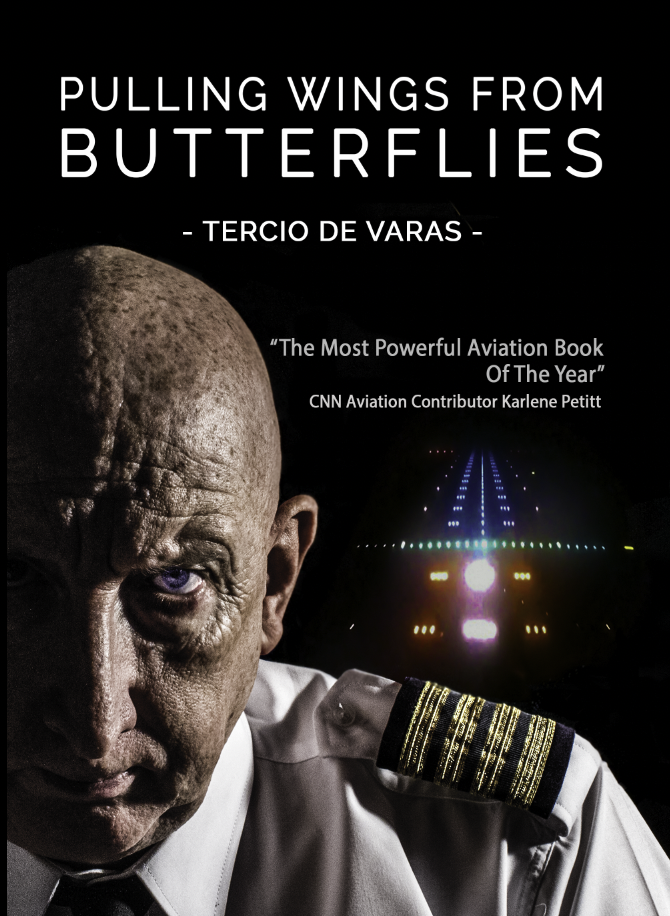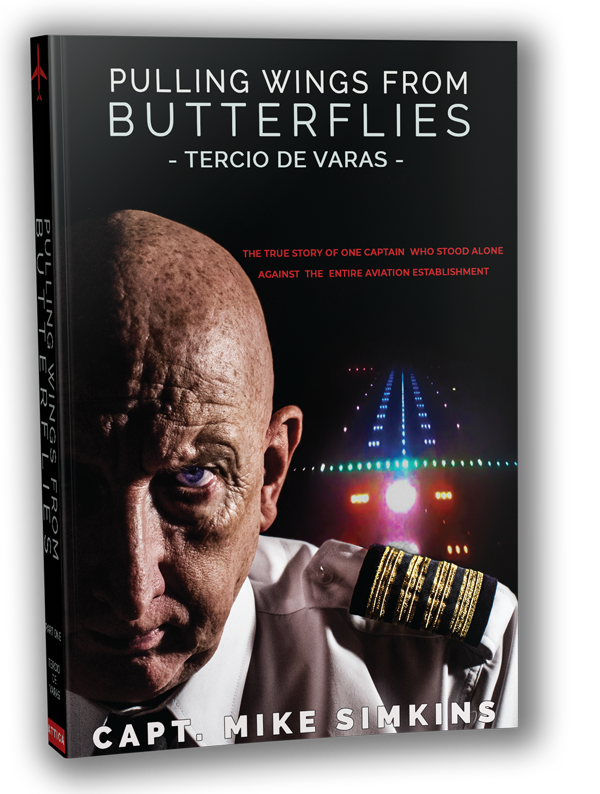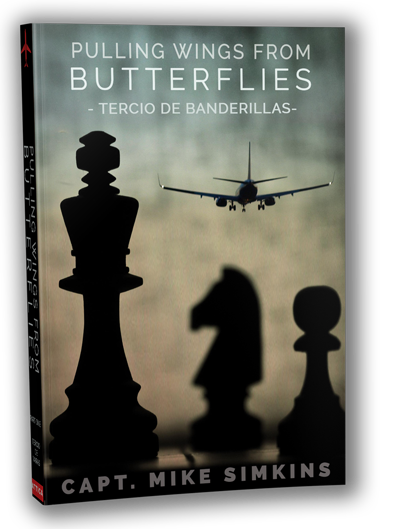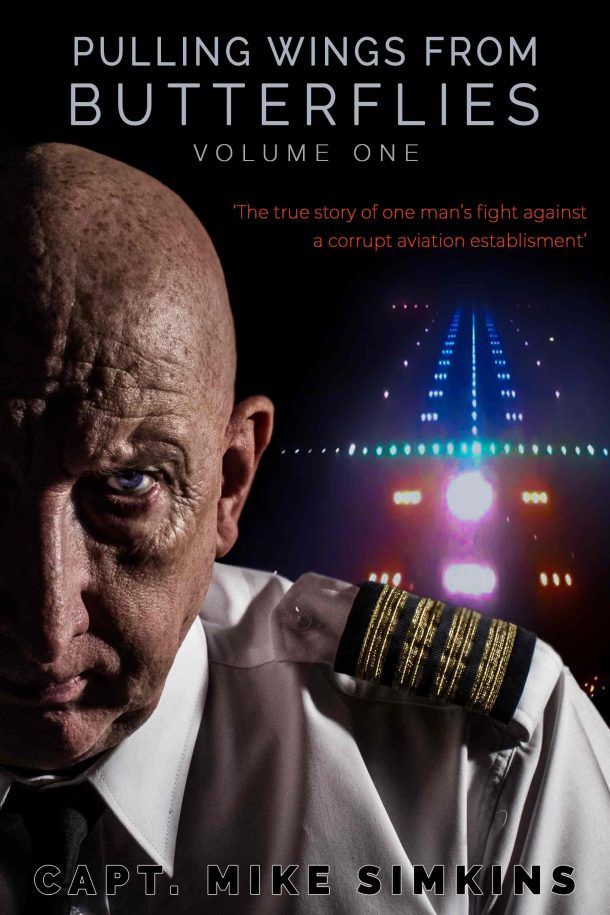Boeing 737 Written off AFTER HEAVY LANDING
“Wings cracked and buckled” state the Air Accidents Investigation Branch (AAIB)
A Boeing 737 suffered a hard landing in Exeter as a result of the plane’s approach to the runway continuing after it became “unstable” according to the Air Accidents Investigation Branch AAIB.
“The commander may have given the co-pilot the benefit of doubt and believed she had the ability to correct an approach that became unstable in the final few hundred feet of the approach” the report stated.
The co-pilot said she did not know what caused the hard landing but did not believe there was a technical issue.
As the aircraft left the runway it “listing to the left” and it was only then that the
” the crew realised there was something ‘seriously wrong’ with the aircraft,” the AAIB added.
The report concluded the damage may have been lessened if the crew had ended the attempt at landing and tried again for a second time.
The main body of the wings was “cracked and buckled” and the top end appeared “creased and rippled”, it said.
PILOT ASSESSED AS BASELINE MINIMUM STANDARD
The above incident serves to highlight the very real dangers of ignoring issues highlighted in previous simulator checks.
The investigation report states in reference to the first officer;
During her previous licence proficiency check on 15 July 2020, during a single engine approach, it was noted that the aircraft produced a “SINK RATE” alert on short finals. There were also some deviations on the GA that was subsequently flown. The training captain recorded this element as passed at second attempt and assessed her Flight Path Management as Baseline Minimum Standard.”
Crucially the report went on to state
“Since this event the operator recognised that there was no robust mechanism for tracking an individual pilot’s performance during a recurrent check and introduced a number of procedures to rectify this. While these new procedures may not have prevented the accident happening it should enable the operator to screen all of those pilots whose performance may be worthy of monitoring.”
So, what happens when the mechanism for tracking pilots is ignored despite repeated warnings.
AIRLINE PAID BY CASH CADETS TO ALLOW THEM TO FLY WITH PASSENGERS
Although there is no suggestion that the Exeter incident involved a P2F cadet (pay to fly) the above does highlight what can happen if there is an underlying issue that there is an absense of a “robust mechanism for tracking an individual pilot’s performance”.
However, what happens when there is such a mechanism but senior airline managment choose to ignore those very clear warning signs due to financial inducements?
The above accident involved a 737 in cargo configeration. No passenegers were on board. However,
The following is taken from the forthcoming book ‘Pulling Wings From Butterflies -Tercio de Banderillas
“Imagine for a moment. You are sitting on an Airbus 320 with your family at Gatwick. You are excitedly waiting for your long-awaited holiday to Kos to begin. The cabin crew look immaculate, and the preflight video promotes how much you are valued and that your safety and comfort is the airline’s number one priority. The cabin crew demonstrate how to “top up” your life jacket. They also explain how to fasten and unfasten your seat belt, just in case you had not sat in a car for the last twenty years or have not quite worked it out yet. These demonstrations are not optional. The CAA mandates them. They provide a warm and fuzzy feeling that you are in safe hands. It gives the illusion of oversight.
In the cockpit sit two pilots, ready to whisk you away to begin your dream and very expensive, two-week break on the small Greek island. Your children are a little nervous as it’s their first flight. You tell them not to worry. After all, flying is the safest form of transport! You explain that the two pilots will be highly experienced, well-trained individuals you trust to fly to Kos safely. Indeed, you trust them with your entire family’s life. Your reasoning is, if the CAA is so keen on inflating buoyancy aids and the mechanics of a seat belt, you are confident they would be scrupulous in ensuring both pilots were not only highly experienced but also highly competent. Competent enough that, in an emergency, either aviator could take control and land the aircraft. That’s why there are two pilots… isn’t it?
An agreement with an external training organisation and the airlines’ training department had been made. This deal benefited not only the flight school but also the airline. The entrance requirement was now much simpler than the previous sponsored cadet route. It allowed anyone with deep enough pockets to fly a jet with passengers on board, irrespective of ability.
On top of the usual costs of the essential training syllabus, the real selling point for the flight school was that they would offer prospective clients, for an added fee of £26,563, the opportunity to fly as a first officer for a summer season with the airline.
The profession was, at a stroke, reduced to a “pay to play” industry. The union and regulator, in their failure to prevent such a situation, were complicit in what many saw as an abuse of passengers’ trust.
The mutual benefit of this scheme to those involved was plainly evident.
It allowed the cash cadet to short-circuit the usual process of a rigorous selection process and two years of dealing with airframe icing while flying turboprop’s in the great British winter.
The advantage to the airline was even more significant. Not only were they paid by the training organisation to ‘line train’ these cash cadets, the company now had access to individuals who would sit in the right seat of their aircraft without ever having to pay them a salary. Instead, the cadets were paying, via the training school, the airline to allow them to fly!
Please note, the second book in the ‘Pulling Wings From Butterflies’ series is to be released once the Crown Prosecution Service in the UK complete their review of the case surrounding information brought to police attention that are contained within the three book series
ASK YOURSELF THE FOLLOWING QUESTIONS
- Would you be happy for you and your family to be flown by a ‘pilot’ in the full knowledge he was in the right seat, not because of ability, but because of a cheque book?
- How would you feel if this pilot had paid a training organisation £26,563 to facilitate him about to fly you and your family on holiday?
- Would you consider it acceptable, due to purely financial reasons, the airline had repeatedly ignored multiple warnings from the training captains with regards to this pilots abilities?
-
Do you consider it would effect senior airline mangers decision making in allowing this pilot to continue flying their passengers due to the airline were not having to pay him a salary but were instead, in effect, having the ‘pilot’ pay them
- By allowing fare paying passengers to be flown by cash cadets, had the CAA failed to protect passenger safety?
- Is it acceptable for the pilot union BALPA to allow airlines to be paid by cash cadets to fly their aircraft rather than fully trained and experienced pilots?
- What do you think was the entirley predictable outcome of the failue by The CAA to regulate, BALPA to challenge the P2F cadets and the airline to place profit before safety would be?
FOREWORD WRITTEN BY KARLENE PETITT
I am pleased to announce that the foreword for the second book in the “Pulling Wings From Butterflies” trilogy has been written by Karlene herself.
The book is to be released once the Crown Prosecution Service in the UK complete their review of the case surrounding information brought to police attention that are contained within the three book series
FOREWORD BY KARLENE PETITT
The year was 2016 when I first connected with Captain Mike Simkins and learned of his case that ultimately became the story on which you are about to embark.
While these events in Mike’s life are nothing short of a legal thriller, I was not surprised at the depths that Thomas Cook management dove to sink him for refusing to operate a flight while fatigued. I was not shocked that the CAA provided management with the oxygen tanks to ensure his drowning.
I wasn’t even stunned when BALPA stood smugly on the shore, watching the attack without assistance. However, I was slack-jawed as I read the details of this courtroom drama that paralleled a tragedy on the other side of the world, one of which I was personally involved.
Mike’s story is not unique to the UK. Airline management is attacking pilots in the US for reporting Federal violations that impact safety, calling in fatigued, or refusing to operate an aircraft illegally. Be it a letter of warning, suspension, termination, or a fabricated psychiatric evaluation that would ground a pilot for life.
BUY DIRECT FOR SIGNED BOOKS
EBOOK £5.99
PAPERBACK £9.99
9 in stock
HARDBACK £17.99
SEE BELOW
5 in stock
SIGNED COLLECTORS ITEM?
Due to repeated demand, it was decided to re-print the book ‘Pulling Wings from Butterflies – Tercio De Varas’.
The book printers however became somewhat ‘artistic’ with the back cover. This resulted in twenty being printed before the error was noticed.
Although the back cover ‘blurb’ is as understandable as the rules relating to the safety car in a Formula One Grand Prix, the contents within are not affected.
‘Pulling Wings from Butterflies’ tells the true story the aviation establishment DON”T want telling; those dreaming of becoming pilots and cabin crew WON”T want to hear; and passengers NEED to know.
If you would like a signed copy of one of these twenty unique hardbacks, they will be sold on a first come, first served basis. As they say, ‘when they’re gone…they’re gone’.
1 in stock
part one - Tercio de varas
The first book in the trilogy begins by following the unique journey of Captain Mike Simkins from touring Europe as a drummer and performing with some of the most prominent musical artists of the late ’80s, to becoming a commander on the world’s most advanced passenger aircraft.
Ultimately, the wings were pulled from the butterfly of a dream career when, Mike stood alone to confront a multibillion-dollar aviation establishment when he refused to place profit before safety.
PArt TWO - Tercio de banderillas
Will the pilot union BALPA and the regulator, the CAA, support a legal case of major significance to the safety of airline passengers and crew?
What’s the reason unions and regulators allow airlines to have ‘Cash Cadet’ pilots with zero jet experience pay them to fly fare-paying passengers?
Why do pilots agree to fly when dangerously fatigued that directly places not only themselves but their passengers and crews in danger?
What was the answer from the Thomas Cook CEO to the question ‘did the company put profit before safety’ in relation to two children’s death in Corfu?
How will a pilot with zero legal experience confront a multimillion-pound multinational at trial?
part three - Tercio de MUERTE
Crews admit that they are knowingly flying duties in the full expectation they will suffer fatigue. They are committing these criminal acts due to the “Bullying” culture at one of the UK’s biggest airlines.
The CAA is provided with irrefutable proof that duty times are knowingly falsified to make it appear they conformed with strictly laid down maximum times and that pilots are flying at the equivalent effectiveness of a drunk driver. Their response? ‘Get over it.’ .

